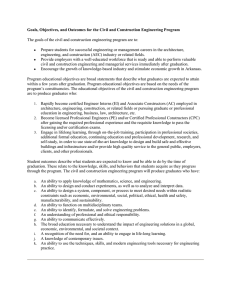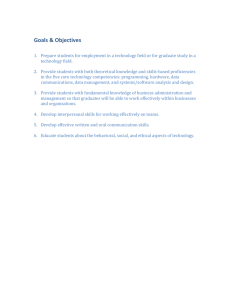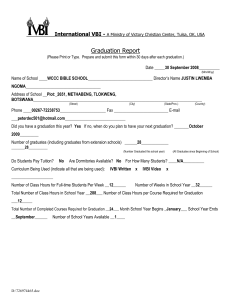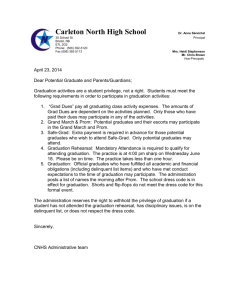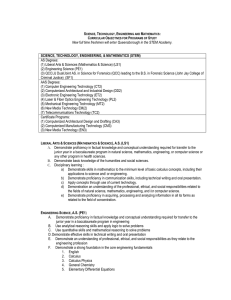Western Washington University Computer Science Department The
advertisement
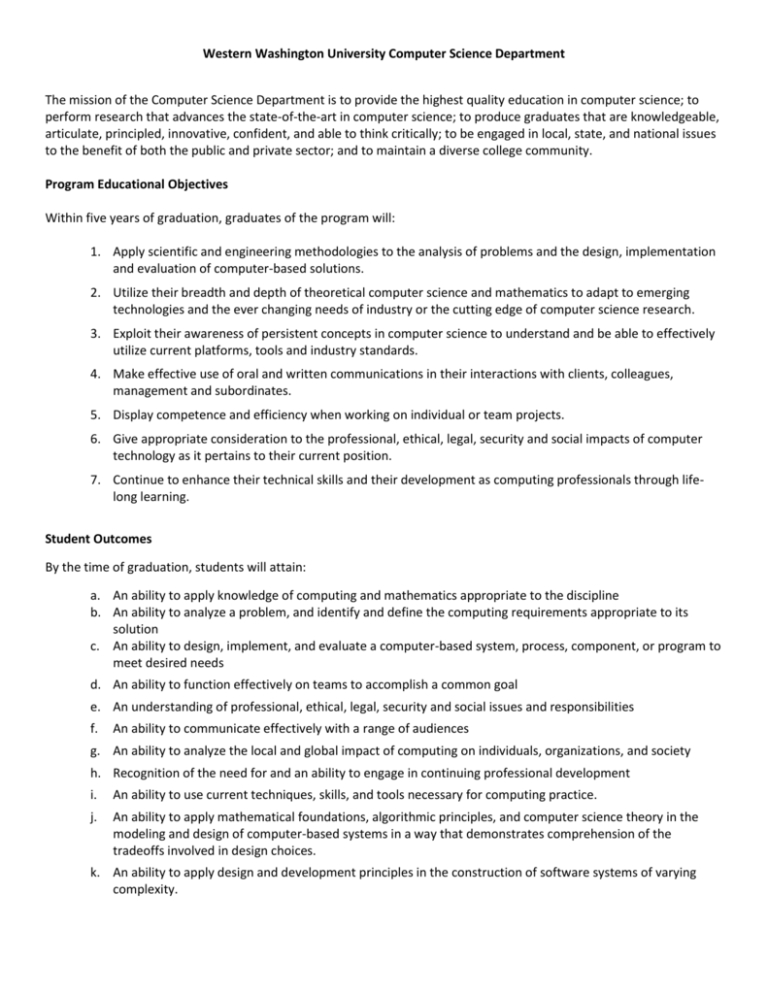
Western Washington University Computer Science Department The mission of the Computer Science Department is to provide the highest quality education in computer science; to perform research that advances the state-of-the-art in computer science; to produce graduates that are knowledgeable, articulate, principled, innovative, confident, and able to think critically; to be engaged in local, state, and national issues to the benefit of both the public and private sector; and to maintain a diverse college community. Program Educational Objectives Within five years of graduation, graduates of the program will: 1. Apply scientific and engineering methodologies to the analysis of problems and the design, implementation and evaluation of computer-based solutions. 2. Utilize their breadth and depth of theoretical computer science and mathematics to adapt to emerging technologies and the ever changing needs of industry or the cutting edge of computer science research. 3. Exploit their awareness of persistent concepts in computer science to understand and be able to effectively utilize current platforms, tools and industry standards. 4. Make effective use of oral and written communications in their interactions with clients, colleagues, management and subordinates. 5. Display competence and efficiency when working on individual or team projects. 6. Give appropriate consideration to the professional, ethical, legal, security and social impacts of computer technology as it pertains to their current position. 7. Continue to enhance their technical skills and their development as computing professionals through lifelong learning. Student Outcomes By the time of graduation, students will attain: a. An ability to apply knowledge of computing and mathematics appropriate to the discipline b. An ability to analyze a problem, and identify and define the computing requirements appropriate to its solution c. An ability to design, implement, and evaluate a computer-based system, process, component, or program to meet desired needs d. An ability to function effectively on teams to accomplish a common goal e. An understanding of professional, ethical, legal, security and social issues and responsibilities f. An ability to communicate effectively with a range of audiences g. An ability to analyze the local and global impact of computing on individuals, organizations, and society h. Recognition of the need for and an ability to engage in continuing professional development i. An ability to use current techniques, skills, and tools necessary for computing practice. j. An ability to apply mathematical foundations, algorithmic principles, and computer science theory in the modeling and design of computer-based systems in a way that demonstrates comprehension of the tradeoffs involved in design choices. k. An ability to apply design and development principles in the construction of software systems of varying complexity. Table showing how Program Objectives map to Student Outcomes Program Objectives Student Outcomes a b c d e f (5 years from graduation) (1) Apply scientific and engineering methodology to solving problems x (2) Knowledge of theoretical computer science and mathematics x (3) Awareness of persistent computer science concepts to adapt to emerging technologies x x x x x x (5) Work effectively in teams and individually x (6) Awareness of professional, ethical, legal, security and social impacts on computing x x x x x x x x x x x x x x x x Graduation Data 2009-2010 42 2010-2011 45 2011-2012 37 2012-2013 54 2013-14 86 k x x x j x x x (4) Effective oral and written communication skills (7) Lifelong learning g h i 2014-2015 21* (through Fall 2014) This table shows the number of graduates earning a BS in Computer Science each academic year. Note that 2014-15 data includes only Summer 2014 and Fall 2014. Projected numbers for 2014-15 are over 100 graduates.
